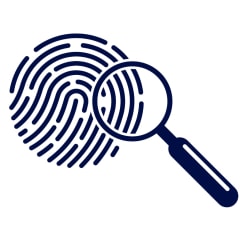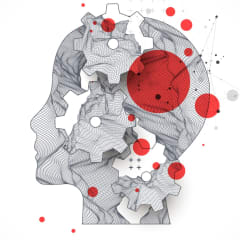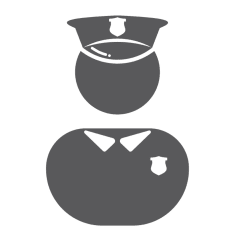Best Careers for Criminology Students
In the real world, criminology may not be quite as exciting as it looks on Criminal Minds, but it can be equally fascinating. This fast-growing field is concerned with the complex connection between crime and society—a challenging relationship that affects many aspects of modern life.
Intellectually stimulating and socially relevant, it's no wonder that criminology is such a popular degree. Students in this unique major develop a broadranging understanding of the personal and social factors that affect crime, deviance, and victimization. They also gain valuable transferrable skills such as critical thinking, data analysis and interpretation, report writing, evidence evaluation, and ethical reasoning. After four years, they leave the program with a deep knowledge of how society affects criminal behavior, and how criminal behavior, in turn, affects society.
Although some criminology majors choose to continue their studies after graduation, many enter the work force right away. Whatever their decision, their professional future will look bright. Criminology majors find success in a wide range of careers—in law, criminal justice, forensic science, and beyond.
This article will be covering the following careers:
| Career | Avg Salary | Satisfaction | Your Match |
|---|---|---|---|
| Police Officer | $61k | 3.3/5 | |
| Forensic Science Technician | $35k | 3.6/5 | |
| Detective | $61k | 3.7/5 | |
| Paralegal | $47k | 2.7/5 | |
| Social Worker | $46k | 2.9/5 | |
| Forensic Psychologist | ?? | 3.6/5 | |
| Correctional Officer | $41k | 2.4/5 | |
| Lawyer | $129k | 2.7/5 | |
| Data Scientist | $132k | 3.3/5 |
Are these careers suited to you? Our comprehensive career test measures your personality traits and interests and matches you to over 800 careers.
1. Police Officer
Becoming a police officer is a natural next step for many criminology majors. In this dynamic role, they'll have a chance to apply their knowledge of the criminal system to help prevent and penalize crimes of all kinds. A police officer's duties can vary depending on where they are based, but most start their careers patrolling: responding to thefts, monitoring roadways for speeding cars, assisting with emergencies, filing reports, and more.

Police Officer
A police officer is responsible for maintaining public safety, enforcing laws, and protecting the community.
2. Forensic Science Technician
Forensic science technicians play an important behind-the-scenes role in many crime investigations. By collecting and analyzing evidence, they help resolve a wide range of crimes. Their duties can include photographing the scene of a crime, cataloguing physical evidence, and exploring the a suspect's role in the crime through laboratory analysis. Although criminology majors will need to obtain additional training in order to pursue this career, they already possess the foundational knowledge of the criminal system needed to succeed in it.

Forensic Science Technician
A forensic science technician, also known as a crime scene investigator (CSI), plays a vital role in collecting, analyzing, and preserving physical evidence from crime scenes.
3. Detective
Detectives work in both the private and the public sector, investigating a variety of crimes and mysteries. They help enforce the law by gathering evidence for criminal cases, a task that can include examining archives and records, interviewing suspects, apprehending criminals, and more. Armed with their excellent research and critical thinking skills, as well as an in-depth knowledge of criminal law, criminology majors are ideally suited to the role.

Detective
A detective specializes in solving crimes and gathering evidence to support legal proceedings.
4. Paralegal
A paralegal's duties can vary widely, depending on what kind of law they practice. Criminology students, with their skills in research, data interpretation, logical reasoning, and evidence analysis, are perfect candidates for paralegal work in a criminal law firm. In this fast-paced, intellectually engaging role, they'll have the chance to contribute to the criminal justice system in a meaningful way. They'll assist lawyers with their cases by interviewing witnesses, meeting with clients, collecting evidence, and more.
5. Social Worker
Child protective service social workers work closely with the criminal justice system, interacting with lawyers, court administration, and family judges on a regular basis. They also frequently come into contact with criminal behaviour. For example, a social worker might be tasked with assessing whether a parent is being abusive or neglectful, or helping to find a traumatized foster child who has run away from home. Criminology majors possess excellent communication and research skills, as well as an awareness of the complexity of criminality—all qualities that prepare them well for a future in social work.

Social Worker
Social workers are dedicated to helping people overcome personal and societal obstacles by providing support, resources, and advocacy.
6. Forensic Psychologist
The road to becoming a forensic psychologist is long and challenging, but, for the right candidate, no career could be more exhilarating. These highly trained professionals straddle the worlds of law and psychology. Their duties can include assisting with jury selection, providing testimony in court, and examining the mental state of criminal defendants to determine whether they can be deemed clinically insane. Criminology students with a passion for the psychology behind criminal behavior can truly thrive in this career.

Forensic Psychologist
A forensic psychologist applies principles of psychology within the legal and criminal justice systems.
7. Correctional Officer
Correctional officers work in prisons and penitentiaries of all sizes to ensure the safety and security of all staff and inmates. Their duties can include supervising and escorting prisoners to various activities, performing periodic inspections of the facility, and enforcing rules and regulations. Although it's possible to find work in this field with only a high school diploma, a bachelor's in a relevant subject—such as criminology—is a valuable asset.

Correctional Officer
A correctional officer is responsible for maintaining security and order within correctional facilities such as prisons, jails, and detention centers.
8. Lawyer
All lawyers start their education with a bachelor's of some kind—and what better subject to choose than criminology? Pursuing this major provides students with knowledge of the inner workings of the criminal justice system, the psychology of criminal and victim behavior, and the legalities of crime and prosecution. Criminology majors also receive training in research, analysis, logic, and communication throughout their degree—all of which set them up for success in a criminal law career.
9. Data Scientist
Over the course of their degree, criminology students take courses in formal logic, quantitative data analysis, and critical thinking—an ideal foundation for a future in data science. Although most professional data scientists hold a degree in either computer science, statistics, or mathematics, it is possible to enter the career without one. Especially as online learning becomes more popular and affordable, any motivated criminology graduate can develop the technical skills they're lacking independently.

Data Scientist
Data scientists use their expertise in statistics, mathematics, and computer science to extract meaningful insights and knowledge from large and complex datasets.

